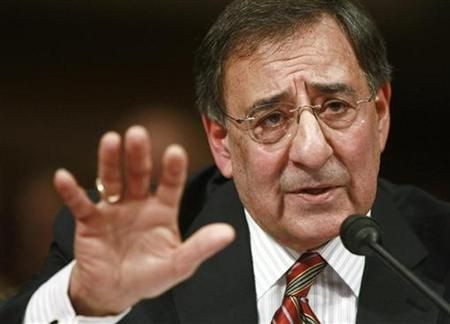U.S. falls behind in foreign languages

Americans are not, in general, proficient in foreign languages. That situation, according to experts, is not good for the nation, not good for humanity, and not good for the individual monolinguist.
For the United States to get to where it needs to be will require a national commitment to strengthening America's foreign language proficiency.
So said Leon Panetta, director of the Central Intelligence Agency. The CIA, on Wednesday, hosted a national Foreign Language Summit, which included policymakers, lawmakers, intelligence community members and foreign language educators from across the country.
The message was as Panetta said: to stay competitive in the global society, the U.S. needs more people with foreign language proficiency.
Mastery of a second language allows you to capture the nuances that are essential to true understanding, Panetta told attendees. This is not about learning something that is helpful or simply nice to have. It is crucial to CIA's mission.
A number of reports over the past several years point to a shortage of translators in the U.S. military and other agencies that work overseas, and how that shortage affects knowledge, understanding of culture and an ability to work together with foreign people and organizations.
Anthony Grafton, professor of History at Princeton University, writing this week in the university newspaper, The Daily Princetonian, addressed the problem as it regards the military.
Sadly, many Americans don't see the point of studying foreign languages at all, since the world seems to have learned English, Grafton said. I wish everyone could speak, as I have, with a veteran of the Iraq war who has done house-to-house searches at night without the benefit of a competent interpreter.
Both Panetta and Grafton know that the problem extends beyond the military and government service.
A significant cultural change needs to occur, Panetta said. And that requires a transformation in attitude from everyone involved: individuals, government, schools and universities, and the private sector.
U.S. Secretary of Education Arne Duncan said that schools, colleges, and universities need to invest more, and more intelligently, in linguistic instruction.
Duncan said a top priority of his department and the administration will be the reauthorization of the Elementary and Secondary Education Act.
Our proposal to reauthorize goes much further than the existing law in supporting a well-rounded, world-class education, he said. The blueprint to reform the law would create a competitive pool of $265 million to strengthen the teaching of the arts, languages, civics, government and other subjects.
U.S. Rep. Rush Holt, D-NJ, has written legislation to increase federal funding for foreign language education.
We need to alter dramatically how children learn language at an early age, Holt said, adding that the government should focus its efforts on teaching languages in grades K through 12.
Rita Oleksak is the director of Foreign Language for the Glastonbury Public Schools in Glastonbury, Connecticut, a school district where foreign language proficiency is required in elementary school.
It's a whole mindset, she said. Our foreign language program is integrated across the curriculum. Students learn necessary skills in foreign languages. They learn to make connections between languages. They learn how languages and cultures are the same and how they are different.
Oleksak said that in the current, interconnected world, with so much knowledge at everyone's fingertips, knowledge of another language and another culture is essential.
She said that students studying Chinese at Glastonbury interact with Chinese students studying English. These young people are able to explore each other and each other's culture through conversations, and such interactions hold great promise for the future, she said.
Through foreign language proficiency students can learn how people are more similar than different, Oleksak said.
John Carlino, executive director of the New York State Association of Foreign Language Teachers, said his organization believes that the ability to communicate in other languages and the cross-cultural skills one builds in learning a language are essential components of a 21st century education.
Carlino said that while English may be becoming a global language in the business world, it's important to point out that if everyone else speaks our language, but we don't speak other languages or understand other cultures, we are at a huge disadvantage in the global market.
Martha Abbott, director of education for the American Council on the Teaching of Foreign Languages, agreed.
It's very naïve to say 'the world speaks English' therefore I don't need a foreign language, she said. Who has the advantage in business when they know your language and you don't know theirs?
Abbott pointed out that the United States recently ranked 26 in the PISA tests. That's the Program for International Student Assessment, conducted every several years by the Organization for Economic Cooperation and Development. The test covers a range of learned skills, and the U.S. Department of Education and other organizations are bemoaning the results and promising vigorous actions to turn the tide.
Abbott said that each of the top ten nations in the PISA listing required the learning of foreign languages in their school systems.
The United States does not, she said.
Both Abbott and Carlino cited research that says that a student's overall cognitive abilities improve when he or she learns a foreign language.
The brain is like a muscle, Abbott said. When you learn a foreign language you begin working parts of the brain you do not normally use. It increases intelligence, communications skills, higher level thinking skills, critical analysis.
Brain and language acquisition research has shown that the earlier one starts and the longer the duration of exposure to another language, the deeper, quicker and longer lasting the learning will be, Carlino said.
© Copyright IBTimes 2024. All rights reserved.





















